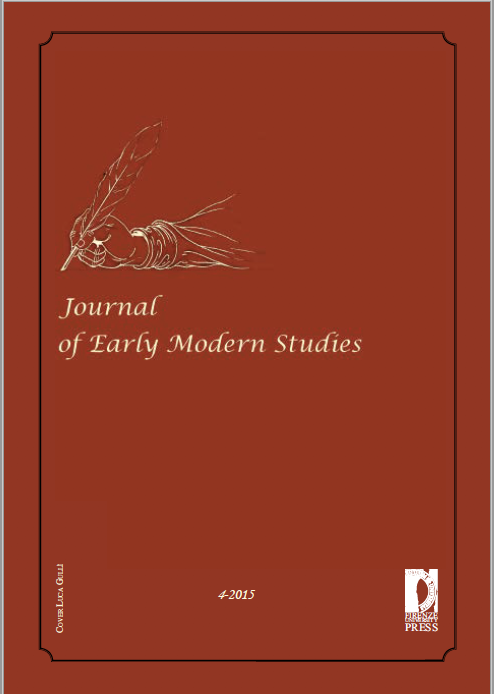Published 2015-03-02
Keywords
- Presentation Manuscript,
- Retainer,
- Service,
- Seventeenth Century
How to Cite
Abstract
The career of the little-known seventeenth-century poet William Basse (c. 1583-1653?) combined two distinctive elements. He served, in the first instance, as a ‘retainer’ to the Wenman family of Thame Park in Oxfordshire for a period of more than forty years. He was also, however, a published poet who produced a substantial body of verse which reflected and intertwined with his career in service. The article aims to stimulate interest in Basse by drawing attention to a manuscript collection of his poems which remains unpublished and has until now been considered ‘lost’ in scholarly accounts of the poet. The Polyhymnia, held at Chetham’s Library in Manchester, was prepared as a gift in the late 1640s or early 1650s for relations of the Wenmans who lived on the nearby Rycote estate. It brought together poems from across the course of Basse’s career, and displayed him writing in a wide variety of forms and genres. The article summarises current knowledge of Basse’s life in service, sets out the context of the Polyhymnia as a manuscript apparently designed to fortify the links between Thame Park and Rycote, and explores the importance of Basse’s perspective as a servant to some of the more intriguing poems in the collection. It concludes by suggesting some of the ways in which a renewed focus upon Basse might contribute to study of the links between service and literature in the future.


